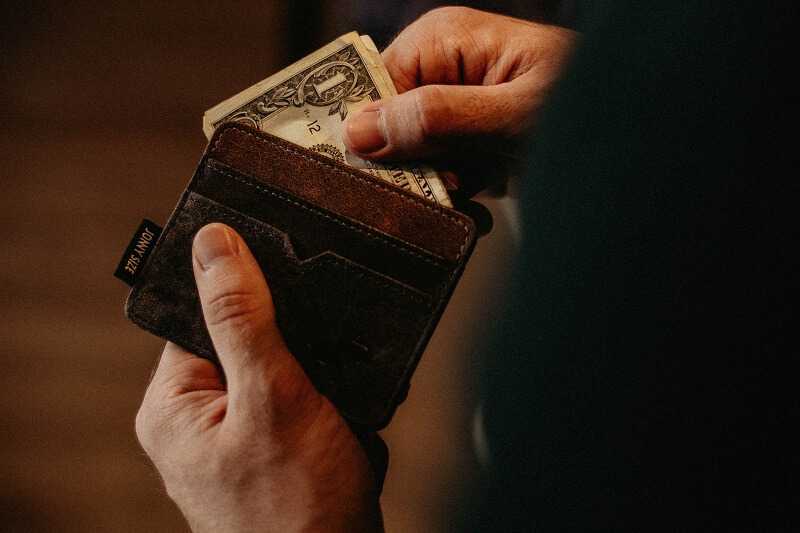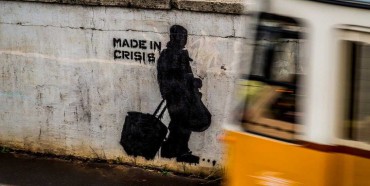 Economic experts and academics agree that there is a real possibility of the US facing a recession by the end of 2020, but how well is the US prepared for it?
Economic experts and academics agree that there is a real possibility of the US facing a recession by the end of 2020, but how well is the US prepared for it?
By Gorica Gligorijevic
Why recession again, how is possible that we didn’t learn the lesson? April 30th will mark the 10th anniversary of Chrysler’s bankruptcy, one of the victims of the Great Recession of 2008/09.
This recession was started by the largest bankruptcy in history, by the fall of the Lehman Brothers. Which showed, along with the dot-com recession before it, that the excesses of Wall Street can cause severe economic downturns with global repercussions.
Wall Street was to be blamed for the software stock and housing bubble which brought the US and global economies to their knees.
Ten years later we are still wondering whether the US and the rest of the world are prepared for another recession.
And these worries look more pressing with the Fed’s yield curve study’s February 2019 update upping the odds for recession from 14% to 50%.
In the past couple of years many prominent economists, such as Paul Krugman, have been warning that the US regulators are ill-prepared for the next recession and that their response to the previous one was ill-suited.
Such voices of concern are now joined by the Economic Policy Institute, Washington, D.C. based think-tank, in a recent report authored by Josh Bivens, the EPI’s director of research.
Why recession ten years later
In June of this year recovery from the Great Recession will enter into the 120th month of economic expansion in the US. That way equaling the previous longest period of economic expansion which started in March of 1991. This record-setting is making people wonder when will the next recession hit?
Bivens state and many other experts agree, that there are real chances for it to happen by the end of 2020.
With Fed’s also upping their projection of chances one has to ask themselves are the US ready to tackle the next recession?
While most people think that the next recession will trigger a suboptimal response from policymakers, because of too high public debt and loo low-interest rates, it ain’t so. Though no person can successfully predict a recession, everyone can see their root causes. And the common theme is the fall of the aggregate demand, i.e. a decrease of the economy-wide spending relative to the production capacities.
EPI’s report goes to show that there are very little risks of the fiscal contraction causing the next recession.
And due to last year’s tax cuts, which are fiscal expansion measures, this is a no brainer. But that does not remove the risk of monetary contractionary policies, which could be triggered by vanning effects of Trump’s tax cuts, and is evident from the interest rates hikes in recent years.
Criticism of economic inequality in the US
EPI’s report can be read as a stern criticism of economic inequality in America, as it exposes direct connection of policymaker’s preference to aid large financial institutions and unwillingness to enact fiscal expansionary policies as a response to the economic downturn.
Simply put economic inequality and the austerity measures worsen the recession dynamics which are driven by the fall of the aggregate demand.
Bivens says that Fed’s interest rates hikes have given to regulators sense of normalcy, but robbed them of sense of urgency to provide recovery for all Americans and not just the Wall Street.
Low- and middle-income households spend a higher percentage of income than rich households, but also have a much higher propensity for spending. With the growing economic inequality being most visible in the stagnating wages of low and middle-income workers, the aggregate demand they could generate is limited, thus putting a severe limit on the recovery from a future recession, as the speed of recovery is depending upon the ability to spend.
But, according to Bivens, it’s not just household spending inability which will impede the future recovery.
“A key lesson from the Great Recession is that fiscal policy is the most effective tool for aiding recovery,” he said.
And for most of the recent recovery, the US government was very shy of the fiscal stimulus out of fears of the level of public debt. When the Fed Chair, Ben Bernanke, took unprecedented action in severely cutting interest rates he sent a very loud message to policymakers that they must do more by providing sustained fiscal stimulus.
With the recent bipartisan support to declaring the US public debt as a single greatest national security risk, the US economy looks less than ill-prepared for answering to the next recession.
Update 8/10/19
Traders-Paradise recently got this email from Andy Kearns, Content Analyst in LendEDU:
“Quite recently, our team conducted a nationally-representative survey of Americans to gauge their sentiment towards the situation of an economic recession. I believe our findings on how the risk of a recession might change consumer spending and investing habits could be an interesting addition for your readers on this page…You have my permission to use anything from the report that you liked.”
Thank you, Mr. Kearns.
So, here you, our readers, will find interactive graphs and charts that display the answers to their survey questions. Also included is an Analysis of Results section so consumers can better understand their findings.
Here is a link to the full report:



Leave a Reply